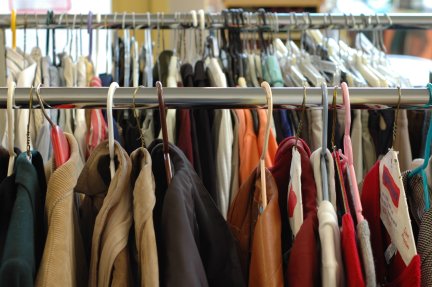No matter how much or how little we are interested in fashion, we all wear something. But where do our clothes come from, what are they made of and what do we do with them when we’re finished with them?
Be Careful with Cotton!
Cotton farming uses a lot of water. Since the 1960s badly planned cotton farming in Central Asia caused the Aral Sea in Kazakhstan to dry up. It used to be 68,000 km2 wide, the 4th largest salt water body in the world. Now only 10% of the water is left.
Cotton farming also uses lots of chemicals. In California alone, over 3 million kilos of chemicals are used in cotton farming.

Stranded boats on what used to be the Aral Sea.
Synthetic Fabrics
Many synthetic fabrics such as polyester and nylon are made from petroleum products and their manufacture is harmful to the environment. They often contain harmful chemicals and do not biodegrade when they are disposed of. A lot of outdoor clothing is made from synthetic fabrics.
Disposable Fashion
More and more people are buying very cheap clothes which are of poor quality. When they wear out they just throw them away and buy new ones. This is a big environmental problem. On average every person in the UK dumps 30 kg of clothes and textiles a year!
The Good News
Many companies make clothes from recycled materials. For example, fleeces can be made from recycled PET bottles.
Don’t forget to recycle your PET bottles while at KISC! Recycled polyester and nylon are available which use no crude oil and use less energy to produce than new polyester and nylon.
Organic cotton uses no harmful chemicals.
Responsible cotton farming saves water and protects ecosystems.
What can you do?
• Buy secondhand clothes when you can
• Swap your clothes with your friends.
• Buy less clothes that are more durable and look after them.
• Wash your clothes less often and at lower temperatures.
• Use eco-friendly detergents like we do here at KISC.
• Repair old clothes rather than throwing them away.
• When you dispose of clothes, recycle them or give them to a secondhand shop.

Sources: “Well dressed?” Cambridge University (2006) ¦ www.patagonia.com
Remember, what you wear matters. Think about your clothes before you buy them. What are they made of, where did they come from and how long will they last?
By Annie Lewis (UK)
Eco Assistant
No comments:
Post a Comment